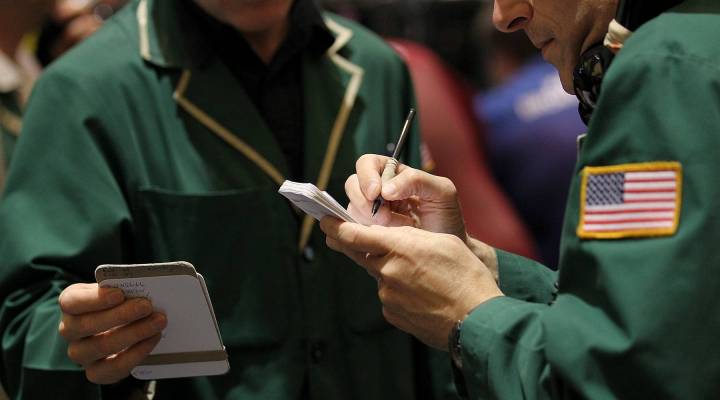
Oil prices slide, and the search for an explanation is on

Oil prices plunged yesterday; they fell more than $3 a barrel in just minutes. And, almost as quickly, the hunt for an explanation started. Was it the rumor that the president might release strategic oil reserves? A fat-fingered trade, a mistake? Maybe Rosh Hashanah had something to do with it? Or the fact that options contracts were expiring? How much was it really about the stock market? The dollar? QE3? It seems like there were as many explanations out there as there were people who get paid to figure these things out.
Predicting oil markets hasn’t always been so mysterious and complicated. PRICE Futures Group analyst Phil Flynn said in the past that “you could just count the barrels of oil coming out of OPEC and you look at demand in the United States.”
“If it’s going to be up, oil prices are going to be up and if it’s going to be down, oil prices are going to be down,” he sums up. But now, it’s a whole different thing. “There are so many factors driving this market, I guess you could say it’s not your grandfather’s oil market anymore.”
All those factors have today’s whipper-snapper traders looking for answers. United Energy analyst Walter Zimmer was flooded with calls yesterday when the market fell.
“What’s happening in energy? What did I miss?” he recalls. “We must have gotten 20 phone calls.” Everyone was scrambling to figure it out.
It’s not just academic curiosity driving these questions; there’s a lot of money at stake. A trader will lose big if he’s the last one to know what’s going on. And, said Zimmerman, today’s traders are more than a little traumatized by the last few years.
“Trust has been beaten out of the investor, by the sharp up-and-downs,” he says, “really since the bursting of the Internet bubble.”
It’s not just investors that have reason to watch these big swings. Market jolts are probably worth a little attention from all of us (even if we don’t know exactly what caused them). Zimmerman says these ups-and-downs serve as reminders “that the markets are not stable, they are fragile. That this recovery is not solid, it is hope-based.”
And that that means things can turn very, very quickly.
There’s a lot happening in the world. Through it all, Marketplace is here for you.
You rely on Marketplace to break down the world’s events and tell you how it affects you in a fact-based, approachable way. We rely on your financial support to keep making that possible.
Your donation today powers the independent journalism that you rely on. For just $5/month, you can help sustain Marketplace so we can keep reporting on the things that matter to you.


















